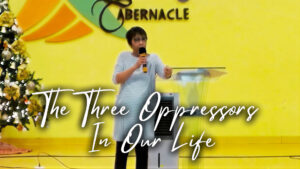KEY TEXT
Isaiah 39:1-8 (ESV)
Verse 1 – At that time Merodach-baladan the son of Baladan, king of Babylon, sent envoys with letters and a present to Hezekiah, for he heard that he had been sick and had recovered.
Verse 2- And Hezekiah welcomed them gladly. And he showed them his treasure house, the silver, the gold, the spices, the precious oil, his whole armory, all that was found in his storehouses. There was nothing in his house or in all his realm that Hezekiah did not show them.
Verse 3- Then Isaiah the prophet came to King Hezekiah, and said to him, “What did these men say? And from where did they come to you?” Hezekiah said, “They have come to me from a far country, from Babylon.”
Verse 4- He said, “What have they seen in your house?” Hezekiah answered, “They have seen all that is in my house. There is nothing in my storehouses that I did not show them.”
Verse 5- Then Isiah said to Hezekiah, “Hear the word of the LORD of hosts:
Verse 6- Behold the days area coming, when all that is in your house, and that which your fathers have stored up till this day, shall be carried to Babylon. Nothing shall be left, says the LORD.
Verse 7 -And some of your own sons, who will come from you, whom you will father, shall be taken away, and they shall be eunuchs in the palace of the king of Babylon.
Verse 8- Then Hezekiah said to Isaiah, “The word of the LORD that you have spoken is good.” For he thought, “There will be peace and security in my days.”
2 Chronicles 32:31 (ESV) – And so in the matter of the envoys of the princes of Babylon, who had been sent to him to inquire about the sign that had been done in the land, God left him to himself, in order to test him and to know all that was in his heart.
INTRODUCTION
- Dealing with the root problem
- Summary of our Key Text
C.S Lewis said, “If anyone would like to acquire humility, I can tell him the first step. The first step is to realize that one is proud……If you think you’re not conceited, it means you are very conceived indeed.”
(3) Title
‘THE THREE PITFALLS OF PRIDE’
Outline:
- God Tests Our Heart
- The Three Pitfalls of Pride
- Response to the Revelation of our PridefulHeart
- The Gospel Hope
MAIN POINTS
- GOD TESTS OUR HEARTS
2 Chronicles 32:31 (ESV) – And so in the matter of the envoys of the princes of Babylon, who had been sent to him to inquire about the sign that had been done in the land, God LEFT HIM TO HIMSELF, in order to TEST him and to know all that was in his heart.
God was testing the heart of King Hezekiah.
God knows our every thought without any trial.
But that knowledge is private to Him.
He wants us to live in the CONSTANT CONSCIOUSLNESS OF HIS PENETRATING KNOWLEDGE, a posture that the Scriptures describe as “WALKING BEFORE THE LORD”.
When there is some detail of our life that needs CORRECTING, He knows it before the test, but He brings the test to make His PRIVATE knowledge PUBLIC, so that we will know that He knows.
How does God test our hearts?
HE TESTS OUR HEART BY TEMPORARILY PULLING HIS HAND AWAY FROM US, JUST FOR A BRIEF WHILE, IN ORDER TO TEST US AND TO ALLOW WHAT IS REALLY IN OUR HEARTS TO BE REVEALED.
God LEFT HEZEKIAHTO HIMSELF, in order to TEST him and to know all that was in his heart.
Our Heavenly Father loves us very much and He wants to remove from us those things that are displeasing to Him or that hinder His ability to bless us and use us as He wishes.
John 15:1-2 says“I am the true vine, and my Father is the vinedresser. Every branch in me that does not bear fruit he takes away, and every branch that does bear fruit he prunes, that it may bear more fruit.”
We may not like the pruning process but God does this for us, so that we will be more fruitful and blessed.
Sometimes the sinful things that He snips away from our lives are things that we are fully aware are there and that need to go.
But sometimes, He reveals things to be snipped away that we are not even aware are still there.
One of the ways that He reveals such things to us is BY PULLING HIS HAND AWAY FOR A SEASON AND TO ALLOW US TO UNDERGO A TIME OF TESTING, so that the sinful habits or attitudes that are still there IN SECRET can be revealed and dealt with OUT IN THE OPEN.
Our loving Father NEVER PULLS HIS HANDS VERY FAR AWAY. He’s always right there – ready to catch us, and to keep us from falling away in an ultimate sense.
But nevertheless, He does – in great love, allow us to undergo TIMES OF TESTING TO REVEAL WHAT IS IN US.
God chose this test for the most righteous king of the Old Covenant, one who “clave to the LORD, and departed not from following him, but kept his commandments” (2 Kings 18:6 KJV).
Hezekiah had proven himself to be a great and godly man.
And God accomplished great things through him.
Great revival under him.
Victory over the Assyrians because of his faith in God
Hezekiah was truly a mighty man of faith.
And yet – as it is true of the very best of God’s people, THERE WAS STILL THE REMNANTS OF SIN SECRETLY ABIDING IN HIS HEART THAT GOD WANTED OUT OF HIM.
In Hezekiah’s case, that sin seems to have been PRIDE.
After God had given that great victory to Hezekiah over the Assyrian, great wealth came to him.
All the honor that Hezekiah received among men caused his heart to be lifted up in pride.
And so, because God loved Hezekiah, He allowed him to undergo a time of sickness – almost to the point of death – in order to humble him and drive that soul-crippling pride out of him.
Hezekiah repented.
And this brings us to the last great event in his life found in our key text.
Perhaps the king thought that pride was no longer a problem for him.
But sadly, it was still there – lurking in him and hiding in the secret recesses of his heart.
As 2 Chronicles 32:27-30 tells us:
“And Hezekiah had very great riches and honor, and he made for himself treasuries for silver, for gold, for precious stones, for spices, for shields, and for all kinds of costly vessels; storehouses also for the yield of grain, wine, and oil; and stalls for all kinds of cattle, and sheepfolds. He likewise provided cities for himself, and flocks and herds in abundance, for God had given him very great possessions. This same Hezekiah closed the upper outlet of the waters of Gihon and directed them down to the west side of the city of David. And Hezekiah prospered in all his works.
And then we come to those remarkable words in verse 31:
“And so in the matter of the envoys of the princes of Babylon, who had been sent to him to inquire about the sign that had been done in the land, God left him to himself, in order to test him and to know all that was in his heart.
It wasn’t that God was ignorant of what was in Hezekiah’s heart.
Rather, it was more of a matter of God putting Hezekiah to the test so that what was really in him could be BROUGHT TO THE SURFACE – so that he himself could know what was really there and could allow God to take from him the remnants of sinful pride that still resided in him.
When God withdrew his presence, Hezekiah’s heart could accomplish nothing.
Nor could the heart of anyone else.
This passage isn’t about Hezekiah.
It is about THE HUMAN HEART.
Hezekiah’s failure in Chapter 39 is not the result of any fault that was peculiar to him alone.
Any of us would fail in exactly the same way, if deprived of the Lord’s presence.
How true it is when Jesus said, “without me you can do nothing” (John 15:5).
Application: Is there a sense in any of us of the kind of complacency and self-confidence that comes from things going “well”?
Does it seem as if things are going so positively in our lives and that we’re feeling so strong, spiritual and respected, that we don’t feel like we need to rely upon God and cry out to Him as much as we have to during more difficult times?
Are things going so well that we find ourselves sometimes forgetting that God is even there and even thinking we’re doing just fine on our own?
If you are in adversity now, what resource are you turning to in these trying times now?
What are you doing in the midst of them? Are you ignoring God with them or trusting God with them? Or are you bitter towards God and feeling like it doesn’t do any good to cry out to Him?
Are you perhaps even beginning to think you’re better off turning to other resources than to Him?
What are the other means you are using to medicate yourself in times of your trial?
Neither the good times nor the really bad times fall outside of God’s sovereign control.
He doesn’t let either of them come upon us except for our good.
And so, could it be that He is allowing us to be tested – in either of those ways, so that what is really in us can be brought to the surface and revealed?
Hezekiah had been tested by the bad.
And now in our key text, he was being tested by the GOOD TIMES.
2. THE THREE PITFALLS OF PRIDE
Pride causes three pitfalls to Hezekiah and it can happen to us too:
- PRIDE CAUSES US TO LET DOWN OUR GUARD AND ALLOWS THE ENEMY TO GAIN AN ADVANTAGE
Verse 1 – At that time Merodach-baladan the son of Baladan, king of Babylon, sent envoys with letters and a present to Hezekiah, for he heard that he had been sick and had recovered.
Babylon, at that time, was not the mighty empire it would soon become.
The king of Babylon heard that Hezekiah had been healed from his illness and sent envoys to him with presents and letters of greetings.
How did the king of Babylon hear about this?
Heard about the “sign”
“The Chronicler describes his (the king of Babylon) motives this way: the term “wonder” (KJV) in 2 Chronicle 32:31 is often associated with “sign”, the name given to the reversal of the shadow on the stairs. Recovery from an illness is not out of the normal course of experience, but the reversal of the shadow was. Like the wise men at the birth of the Lord, these ambassadors are drawn by a celestial sign marking an earthly event.”
Or they had heard about the victory of Judah over Assyria.
2 Chronicles 32:31 says that they came “to inquire about the SIGN that had been done in the land.”
Assyria may have just suffered a devastating defeat but was still something of a threat; and perhaps thinking that God’s work in Israel could be turned to his advantage against Assyria, the king of Babylon sought to get on friendly terms with Hezekiah while he could.
Whatever the motive might have been on the part of the king of Babylon, the arrival of these envoys was something that FLATTERED Hezekiah.
Isaiah 39:2- And Hezekiah welcomed them gladly. And he showed them his treasure house, the silver, the gold, the spices, the precious oil, his whole armory, all that was found in his storehouses. There was nothing in his house or in all his realm that Hezekiah did not show them.
Hezekiah’s response expressed a desire to share these resources with an ally who might help Judah oppose Assyria.
Thus, Hezekiah’s act demonstrated TRUST IN BABYLON AND RELIANCE ON HER FOR SAFETY.
Here was a ready-made opportunity for Hezekiah to glorify God before the pagan Babylonians, to tell of his greatness and of His grace.
Instead, Hezekiah succumbed to the temptation to glorify himself and to prove to the Chaldeans that he was a worthy partner for any sort of coalition they might have in mind.
There is no indication that they were interested in such an alliance, however.
Much more likely they simply wished to encourage someone whom they viewed as petty kinglet without making any commitment on their part.
Hezekiah should have known better than to do this.
The prophet Isaiah, who had a close relationship with the king, had already written about what God was going to do through the Babylonians.
Recklessly showing them all his treasures without consulting God or Isaiah in the way he did was a lot like a small-town boy who is awed by the attention of a big-city man.
Judah was a lowly nation with little power and Babylon was a junior superpower.
To receive this notice and recognition from the king of Babylon must have really made Hezekiah feel he was important.
Hezekiah received this compliment from the king of Babylon wrongly and LET IT GO HIS HEAD.
Application: It is easy to get too puffed up when people compliment or recognize us and to begin to take their praise and ourselves too seriously.
In this place of wanting to please men, Hezekiah is no longer a true servant of God.
Paul wrote in Galatians 1:10, “For if I were still trying to please man, I would not be a servant of Christ.”
When we live to please men, we cannot at the same time live to please and serve God.
When we live to please men, we are really living to serve ourselves, because what we value from men is the PRAISE AND HONOR AND RECOGNITION they may give us.
It is a glorious thing to live to SERVE men but not to live to PLEASE them.
Just as Samson revealed his strength to the whore, so Hezekiah revealed God’s glory to the devils as though he were their companion and had received favors from Babylon.
It was truly tragic that Hezekiah didn’t react to the letters he received from these envoys the way he had reacted to another letter he had once received.
Back in the days when Assyria was oppressing Jerusalem, the King of Assyria sent a threatening letter to Hezekiah through some of his ambassadors.
But Hezekiah did the right thing with that letter.
After he received it and read it, he went up to the temple, spread it before the Lord and prayed about it.
But in this occasion, he didn’t do so. This letter also came from an ungodly king.
But it wasn’t perceived as a threat.
It was a letter of CONGRATULATIONS AND FLATTERY.
Application: We tend to be on our guard against the danger when the enemy of our soul openly threatens us.
We are quick to turn to God and cry out for His help then. We are quick to seek wisdom from Him at such times.
But we are never in greater danger than when the enemy of our soul sends his ambassadors to flatter us or to patronize us or to seem to extend a hand or friendship toward us. It is then that we tend to think that we don’t need to cry out to God or turn to Him for wisdom. And it is then that we may be the most vulnerable to the devil’s attack. As Proverbs 27:6 warns us, “the kisses of an enemy are deceitful”!
“When Satan cannot defeat us as the “roaring lion” (1 Peter 5:8-9), he comes as the deceiving serpent. What Assyria could not do with weapons, Babylon did with gifts.”
Hezekiah wasn’t on his guard.
He was overcome by a remnant of pride that he didn’t realize was still lurking in his pride and so he vainly displayed all his treasures before the very enemies of his people who would then go home and covet them.
PRIDE CAUSES US TO LET DOWN OUR GUARD AND ALLOWS THE ENEMY TO GAIN AN ADVANTAGE.
- PRIDE BLINDS US TO THE TACTICS OF THE ENEMY AND MASKS THE SHAME THAT WE SHOULD FEEL FOR OUR DEFECTION
And it was then that a word from God.
Verse 3- Then Isaiah the prophet came to King Hezekiah, and said to him, “What did these men say? And from where did they come to you?” Hezekiah said, “They have come to me from a far country, from Babylon.”
Can you detect a little pride from the answer of Hezekiah when Isaiah questioned him where the envoy came from?
Verse 3b – “They came all the way from a far country, from Babylon, JUST TO VISIT ME.
Hezekiah saw himself as the center of the envoy’s interest, even though the “sign” about which they came to inquire was done by the Lord.
hey would have been primed to hear an explanation in spiritual terms.
Yet Hezekiah deflected their interest to HIMSELF.
Isaiah probed further by asking in verse 4, “What have they seen in your house?”
Hezekiah replied, “They have seen all that is in my house. There is nothing in my storehouses that I did not show them.”
Here, Hezekiah spoke of it all as HIS- as if he had forgotten that he had received it all as an act of GOD’S GRACE.
He forgot that he would have had everything he owned taken away by the King of Assyria if God had not come to his defense.
He forgot that he only received all the riches he now had because God had mercy on him after his illness.
Application: Many times we are so prone to our own “Nebuchadnezzar” moments when just like the Babylonian king, we strut around all the stuff in our life and say, “Is not this great Babylon that I have built for a royal dwelling by my mighty power and for the honor of my majesty?” (Daniel 4:30).
“For who sees anything different in you? What do you have that you did not receive? If then you received it, why do you boast as if you did not receive it?” (1 Corinthians 4:7).
PRIDE BLINDS US TO THE TACTICS OF THE ENEMY (NAMELY FLATTERY) AND MASKS THE SHAME THAT WE SHOULD FEEL FOR OUR DEFECTION (WE HAVE DEFECTED TO OURSELVES).
- PRIDE COSTS US MORE THAN WE THINK – BOTH IN TERMS OF KINGDOM OBJECTIVES AND PERSONAL FULFILMENT
Isaiah spoke another word from the Lord that cut Hezekiah back down to size.
Verse 6- Behold the days area coming, when all that is in your house, and that which your fathers have stored up till this day, shall be carried to Babylon. Nothing shall be left, says the LORD.
In ARROGANCE, there was nothing Hezekiah didn’t show to the Babylonians.
And now in HUMILIATION, just a hundred years or so from that time, there would be nothing of it all that the Babylonians would not carry away.
And there was more, Isaiah went on to say:
Verse 7 -And some of your own sons, who will come from you, whom you will father, shall be taken away, and they shall be eunuchs in the palace of the king of Babylon.
At that time, Hezekiah didn’t have any sons.
But God promised that one day he would have an heir.
And those who descended from him would be carried away as captives to the very nation he had just shown off to.
This literally happened when the Babylonians came- beginning in 605 B.C. and began successively to take away all of the kingdom of Judah into captivity for seventy years.
What a costly thing this hidden “pride” was.
God had permitted the envoys from Babylon to come and test Hezekiah and to reveal the remnants of pride that had still not been driven out of him.
PRIDE COSTS US MORE THAN WE THINK – BOTH IN TERMS OF KINGDOM OBJECTIVES AND PERSONAL FULFILMENT
It costs Hezekiah his whole kingdom and personal fulfillment.
There is no doubt that Hezekiah started out as a godly king and overall, his reign was one of outstanding godliness.
Yet his beginning was much better than his end.
Hezekiah did not finish well.
God gave Hezekiah the gift of 15 more years of life but the added years did not make him a better or more godly man.
Time or age doesn’t necessarily make us any better.
Consider that time does nothing but pass away.
We sometimes say, “time will tell”, “time will heal,” or “time will bring out the potential in me.”
But time will do nothing of the sort.
Time will only come and go.
It is only HOW WE USE TIME THAT MATTERS.
Hezekiah didn’t make good use of the extra time the Lord gave him.
He lived in pride.
3. RESPONSE TO THE REVELATION OF OUR HEART
Verse 8- Then Hezekiah said to Isaiah, “The word of the LORD that you have spoken is good.” For he thought, “There will be peace and security in my days.”
At the first read of this verse, we quickly jump to the conclusion that there is no nobility in Hezekiah’s selfish evaluation of God’s discipline or judgment.
It seems Hezekiah was a man who lived for short-term gratification – “There will be peace and security in my days.”
“The Chronicler has a more positive view on what is going on. 2 Chronicles 32:26 (KJV)says, “Notwithstanding Hezekiah humbled himself for the pride of his heart, both he and the inhabitants of Jerusalem, so that the wrath of the LORD came not upon them in the days of Hezekiah.”
Taken and read solely on its own from Isaiah 39:8, it would seem Hezekiah was very self-centered.
But if you are to read it with 2 Chronicles 32:26, then you will get a more positive picture of the response of Hezekiah when his prideful heart was exposed and revealed by God.
Remember our conclusion from 2 Chronicles 32:31 that God is using Hezekiah as a case study of what happens to Israel’s most righteous king when left with only the resources of the flesh.
Once this demonstration is accomplished, the LORD tenderly granted him “the spirit of grace [compassion] and of supplications [pleas]” (Zechariah 12:10 KJV).
Hezekiah’s statement, “The word of the LORD that you have spoken is good”=an acknowledgment of his sin and the recognition of the DELAY is thanksgiving for the measure of grace that the Lord has bestowed on him.
“Hezekiah does not argue against the Lord. Now recognizing his error, he submits himself to the judgment of God. The Lord has perfect wisdom and understanding. It is pointless to argue that His judgments are unfair. Hezekiah acknowledges his guiltiness but also praises God. He realizes that even in God’s judgment is GRACE, for he will not have to bear the consequence of his decision. God may delay the consequences of his decision to spare a believer if He sees it will perform His divine will. Other times, one must endure the consequences immediately. In this case, God may be sparing Hezekiah from immediate judgment because he is a faithful servant of God. This event occurs directly after his miraculous healing in which it is made clear that Hezekiah has repented of his sins. God knows that while Hezekiah wants to serve God, his descendants will turn from Him. Thus, Hezekiah, who is retentive, is spared from the consequences while those who will come after him who will not repent, will bear them.”
4. THE GOSPEL HOPE
Pride, this deadly and unseen sin is always the root cause of our sins.
Proverbs 27:21:“The crucible is for silver and the furnace is for gold, and a man is tested by his praise.”
The pitfalls for praise are more than for suffering or adversity.
Hezekiah failed in his test of good days.
He failed because he deflected from God to himself with PRIDE.
He opened up the treasuries and showed off everything to his enemies, wanting to gain their approval and praise and alliance.
He failed because God left him temporarily to himself to see what was in his heart.
His heart proved to have some remnants of pride in him which cost him his whole kingdom and personal fulfillment.
But there is one Greater Hezekiah who when God forsook him, FARED WELL ON THE CROSS.
He did not show off all the treasuries of his Deity. Instead, He showed the world the degree of humiliation he was willing to undergo just to win BETTER TREASURES for God and that is you and me…..the precious redeemed souls.
Yes, Jesus did not cave in to the praises of men when they hailed Him Hosanna. His eyes were still set on the cross. Jesus did not cave in to the rejection of his own people when they decided to crucify him. Instead, Jesus allowed them to strip him of everything – praise, respect, recognition and honor.
He was crucified alongside with the criminals. He did not use His authority as the Son of God to call upon the twelve legions of angels to rescue him from the cross.
Instead, He emptied himself by showing his nakedness and humiliation to the whole world so that today when PRIDE seizes you to think that you made it on your own, you can look up to this Greater Hezekiah and say – “Lord! You became nothing so that I can become something today and if today you have blessed me, I know that everything comes from you becoming nothing. You empty yourself of the treasuries of your title and authority so that today I can become your GREAT TREASURES.”
That is our gospel hope – Looking at all our blessings, our wealth, our intelligence, our treasures, our talents, our abilities through the lens of the gospel – that our Lord was stripped naked so that today we can be clothed with His righteousness and riches.
And with that we have no reason to boast because everything we have and everything we can do on this earth is a gift we have received from Him.
“In him we live and move and have our being” (Acts 17:28).
So why be inflated with pride as if everything comes from us?
Let us all repent and look to Jesus as our Greatest Example.
CONCLUSION
Illustration: THE PALM MONDAY DONKEY:
Let us live in the CONSTANT CONSCIOUSLNESS OF HIS PENETRATING KNOWLEDGE and let us continually “WALK BEFORE THE LORD” and humble ourselves before Him when our pride is exposed.
MY TESTIMONY
Proverbs 15:33:“The fear of the LORD is the instruction of wisdom; and BEFORE HONOUR IS HUMILITY.”
“You will not get close to wisdom without fearing God. And you will not get close to true honor WITHOUT HUMILITY. If you love wisdom and seek the favor of God and men, then here is the rule for your life: humble yourself before God and men in the fear of God………What is humility? It is the knowledge that you are very fallible, very foolish, and very weak. It is the willingness to reject your own thoughts and opinions in order to be taught by God or men wiser than you. It is the ability to take correction, confess your faults, and change your methods based on the instruction of others. It is the discipline to keep your mouth shut, avoid the conflicts of others and forgive their offences against you…….The shortest and surest way to HONOR IS THE HOVEL OF HUMILITY. Get down, before God and men put you down. If you get down, God and man will put you up. The lesson is certain; the law is infallible. God resists the proud, but He helps the humble. It is the way of Him who cannot stand the stench of human confidence. Joseph reached the throne through the slave market and prison. JESUS REACHED THE THRONE OF GLORY THROUGH A STABLE AND A CROSS……When you humble, you get down before God and men. In that position, He gives grace and wisdom. In that position, He avenges you from your enemies. In that position, He exalts you above others, for He will crush the proud and promote the humble. In that position, He knows that exalting you will not bring the arrogance or self-confidence.”





